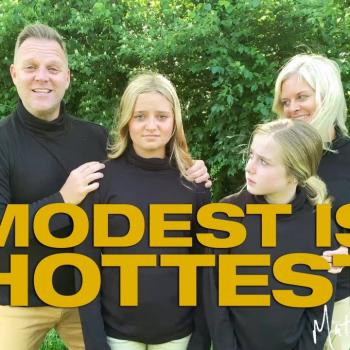When it comes to introducing evolution to middle schoolers, there’s good news and there’s bad news.
That’s the conclusion of a new paper published in the journal Evolution: Education and Outreach by researchers affiliated with the National Center for Science Education.

Rob Boston of Americans United for Separation of Church and State summarizes the findings:
The good news is that of the teachers who discuss evolution in class, 81.8% emphasize that there’s a scientific consensus on the reality of evolution. Furthermore, those who teach evolution are devoting a substantial amount of classroom time to it — 14.6 class hours, which translates to about three weeks of instruction.
The bad news is that not all middle school science teachers are offering instruction on evolution. Of all the teachers surveyed, 52% teach evolution as settled science, 21% avoid the topic, 18% offer a mixed message (defined as “emphasizing the broad scientific consensus on evolution while also emphasizing the scientific credibility of creationism”) and 9.3% are actually favoring creationism.
In other words, when teachers teach evolution, they do their jobs well and make sure students understand how scientifically solid the theory is. Unfortunately, many teachers don’t teach evolution at all or teach it with unnecessary grains of salt.
None of this is exactly surprising to me. When I attended a public middle school about 15 years ago, I still remember my science teacher telling us, “You may or may not believe in evolution; this is just what I have to teach you.” That didn’t bother me; I just thought, Good, I don’t believe in it. But it was that introduction to evolution that made me want to learn even more about it. I developed a passion for it. And that journey admittedly steered me toward atheism (as well as writing this very post).
I suppose that stories like mine are what many evolution-deniers are afraid of: If we teach children about evolution, they will accept science, respect evidence, reject the Creation myth, and eventually turn away from God. But just because that’s a possibility doesn’t make evolution any less true.
These teachers who downplay evolution’s validity (and treat the word “theory” as if that suggests evolution isn’t a reliable explanation) act like biology and other Earth sciences can operate without it. They can’t. The sciences are all interconnected.
That’s why the researchers say it’s a good thing that over 20 states have adopted the Next Generation Science Standards. Those states “are more likely to report devoting more class time to evolution.” The standards also include Crosscutting Concepts, which
… help students explore connections across the four domains of science, including Physical Science, Life Science, Earth and Space Science, and Engineering Design.
When these concepts, such as ’cause and effect’, are made explicit for students, they can help students develop a coherent and scientifically-based view of the world around them.
One of the best things we can do for teaching evolution is making sure that teachers and students know that all life, all the sciences — as well as other fields like math and history — are all interconnected. You can’t have biology without evolution. You can’t have the fossil record as we know it without plate tectonics and migration. And you can’t have anything without physics.
Another good reason to adopt those standards?
… middle school teachers in states that have adopted the Next Generation Science Standards and who are newer to the profession are more likely to report themselves as presenting evolution as settled science.
That bodes well for the future. In the words of the researchers, “a degree of improvement through retirement and replacement is likely to occur naturally in the coming years.” That makes sense. Younger people are more likely to accept science in general and evolution in particular. They’re also less likely to be part of an organized religion and accept religious dogma like Creationism. If they represent the next crop of science educators, their students will benefit in the long run.
But that won’t happen by itself. We can’t get complacent. Communities and school boards need to support those teachers, fight back when politicians try to inject non-science propaganda in schools, and continually push for public policy that keeps state and church separate.
(Image via Shutterstock)




It’s Moving Day for the Friendly ..."
It’s Moving Day for the Friendly ..."
It’s Moving Day for the Friendly ..."
It’s Moving Day for the Friendly ..."